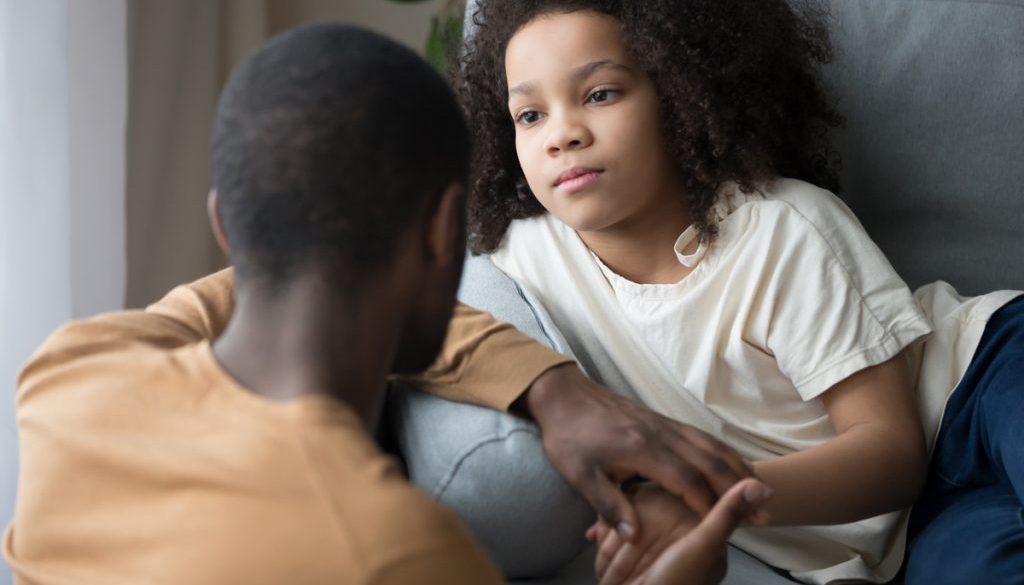How to Support Children Through Challenging Times

There is no way around it, life looks and feels different these days. Adults working from home, social distancing from one another and face masks everywhere you look. For children, it is the loss of friendships, school, routine, sports, and other social activities. It’s a confusing time for all of us and many of us are grieving the way things used to be.
With all this uncertainty, it is an especially important time to “show up” for our children. When we “show up” we are making the effort to be emotionally available and present to others. To be clear, “showing up” looks different for everyone, including kids. So, try to be sensitive and aware of the ways that make your child feel most supported. Here are a few ideas to keep in mind:
- Ask open ended questions- Most kids have heard about COVID-19, especially kids that are school-age. They may have read information online, watched something on TV, or overheard family, teachers or peers talk about the virus. There is a lot of conflicting information out there, don’t assume that they understand what is going on or that they even have accurate information. Asking open ended questions can help to create real conversation between you and your child and can help you to gauge what they already know and where they could use more support. Try open ended questions like: “What is something interesting you learned today?” or “What things are you looking forward to this week?”
- Be the “calm in the storm”- Kids are very sensitive and aware of their surroundings. When speaking about COVID-19, whether directly with them or within earshot of them, stay calm and try not to be reactive. Children are always listening, and they pick up on subtleties so be keenly aware of not only what you are saying but also how you are saying it.
- You do not have to be the expert- Children may have a lot of questions about what is going on. If you don’t know the answer, it’s ok to say, “I’m not sure about that,” and take that opportunity to try to find out the answer together.
- Be empathetic- Along with being ok with not having all the answers, you don’t always have to give advice either. Often, a simple response such as, “I feel that way sometimes too,” goes a long way to help your child feel understood and that they are not alone in their feelings. Let them know that it’s ok to feel worried or anxious, everyone feels that way sometimes. Helping your child to recognize these feelings and understand that “this too shall pass” will help build resilience when life finally does get back to normal.
- Keep in contact with friends and family- Children tend to worry more about loved ones more than they worry about themselves. They may overhear that the elderly are more vulnerable to the virus, and this can trigger anxiety about their grandparents, uncles and aunts, or other loved ones. Allow ample opportunity to call or video chat with relatives and friends, this can help them feel reassured and keep them feeling connected.
- Be generous with grace- Understand that changes in behavior such as irritability, regression, and changes in sleep and appetite are how kids communicate their frustration and anxiety. Be supportive, empathize and normalize their sadness about the losses they are feeling. Give extra love and reassurance throughout these trying times, and generally the behaviors will subside with time. Be careful not to minimize any behaviors that are concerning and contact their school counselor or a mental health professional if needed.
As you navigate the unchartered territory of COVID-19 and discover ways to best support your children, keep in mind that your job is not to take away their fear and anxiety. Your job is to provide the reassurance that no matter what is going on in the world, you love and care for them unconditionally and that you will get through it together.
Finally, as the old saying goes “you must first put on your own oxygen mask before you can help others.” Routinely do a mental health check-in on yourself. Be kind to you and offer yourself the same grace you extend to others.





